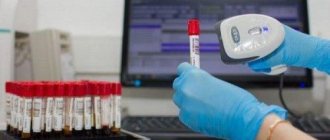As doctors say, you need to be attentive to your body. And periodically pay attention to the products of your own vital activity. Changes in the color of feces, urine, saliva, and skin can tell many interesting facts about the life and health of their owner.
As it happens, I went to the toilet in the morning and discovered that there were black marks left on the toilet paper after defecation. He looked in and gasped - for some reason the feces were a terrible black color. What should I do and should I start to panic?
Black stool due to medications
Black stool may be caused by medications
. You can recognize this nature of this phenomenon by the absence of any accompanying symptoms.
Also, the appearance of black feces can be caused by the consumption of coloring foods. However, more often it became a consequence of taking the following types of medications:
| Group | Drug names | Cause of black stool |
| Gastroprotective | Activated carbon, De-Nol | Adsorption of toxic substances. |
| Vitamins and dietary supplements | Ferummlex, Fenyuls | May contain components that color stool. |
| Anti-inflammatory | Ibuprofen, Nemisil, Aspirin | They contain bismuth, which changes the color of stool. |
| Blood thinners | Kurantin, Aescusan, Fenilin | May cause slight bleeding into the intestines. |
All medications in the presence of gastrointestinal diseases should be prescribed by a doctor.
Black stool and toddlers, when to start worrying
In the first days of life, black stool is meconium.
I would immediately like to reassure parents - in children, diseases that cause changes in the color of stool are very rare. But there are cases that can cause a commotion!
We arrived from the maternity hospital, took off the diaper and found black feces. Parents are in shock! Do not be nervous! Most likely it is meconium. This discharge is completely normal for babies during the first few days of life.
The color of feces depends on its composition. Meconium consists of the remainder of amniotic fluid, inclusions of bile, and epithelial cells. In appearance it is a viscous, black discharge, possibly with a green tint.
A few days will pass and the stool will return to its normal yellow-brown color. If the baby is bottle-fed, his stool may also have a greenish or greenish-brown tint.
Many modern infant formulas contain iron to prevent anemia. It gives such an interesting shade to feces. This fact is usually described in the instructions for the mixture, so read it carefully! For older children, the reasons are usually banal:
- Dyes in food – beets, blueberries, currants, prunes
- Medications
Parents! Remember! If the child is active, runs and jumps, eats well and is not capricious, then the black nuisance in the potty is an accident! But if you experience nausea, vomiting, or a general deterioration in your condition, then you need to urgently contact a medical facility!
Bleeding from the gastrointestinal tract
Provoke bleeding from the esophagus
Varicose veins, Mallory-Weiss syndrome, ulcers and stomach cancer, and serious trauma may occur.
Because of this, the stool becomes black or, according to medical terminology, melena
.
You can recognize this nature of changes by constant pain in the stomach, nausea and vomiting, general weakness and regular increases in body temperature. Particular alarm should be sounded in cases where the vomit becomes bright red or has a coffee grounds color.
. If a man has black stool, it means he is bleeding.
In case of severe and prolonged bleeding, it is necessary to call an ambulance to prevent serious consequences.
According to statistics, bleeding most often begins in the upper gastrointestinal tract, only in 10-15% - in the lower
. Half of all cases are due to diseases of the stomach, about 30% are due to diseases of the duodenum, in 10% bleeding is due to serious damage to the rectum and in 5% to the esophagus. Much less often, in only 1% of all diagnosed cases, the appearance of black stools also indicates pathology of the small intestine. Also, if you correctly evaluate the appearance of the stool, you can determine the type of disease: obvious or hidden, one-time or recurrent, acute or chronic.
Varicose veins of the esophagus
Esophageal varices are a condition in which the blood vessels become inflamed and stretched. For a long time, this disease may not manifest itself in any way; a person lives his usual life and does not think about his pathological condition. When the affected blood vessels
overstretched, they rupture, which leads to internal bleeding.
If you do not provide medical assistance to a person in time, there is a high risk of death. You can recognize a ruptured vein:
- characteristic abdominal pain;
- a sharp decrease in blood pressure;
- weakness, dizziness;
- vomiting with blood;
- black chair.
Particularly dangerous is portal vein rupture, which is caused by increased pressure in the portal vein. Blood passes through this area from the digestive organs to the liver. Due to hypertension, venous vessels begin to expand and their walls become fragile. Over time, they can completely collapse and begin to bleed.
b.
Most often, this phenomenon is caused by cirrhosis. It causes serious scarring on the liver. Usually the disease is caused by excessive alcohol consumption, the influence of harmful toxic substances, and complications of other gastrointestinal
. Be sure to find out why and under what diseases black feces begin to haunt a person. Often pregnant women become the owners of this problem.
Black stool, disease is to blame
The doctor will check to see if the change in stool color is accompanied by other symptoms.
A sudden change in the color of feces is one of the main signs of internal bleeding. Erosion of various blood vessels occurs in the stomach, intestines, and rarely in the duodenum.
Usually this condition accompanies ulcers - destruction of the membranes of the gastrointestinal tract. Black feces, diarrhea and stomach pain are a reason to immediately consult a doctor!
In addition to ulcers, black feces or melena are caused by the following pathologies:
- Lymphoblastic leukemia in the acute stage
- Reflux disease - especially the erosive form
- Inflammation of the gastric mucosa - gastritis
- Granulomatous enteritis
- Plague
- Infection with worms of the genus hookworm
- Darling disease is a fungal disease. The culprit is considered to be a fungus of the species Histoplasma capsulatum
- Malignant tumors of the stomach or intestines
- Varicose veins of the stomach or esophagus
In this case, black feces are not the only manifestation of pathology. All these diseases are accompanied by pronounced symptoms. These are pain, bloody vomiting, dizziness, decreased blood pressure, interruptions in heart function, and bloating.
Cancers of the stomach and intestines, in addition to pain, have several characteristic signs:
Stomach ulcer
Stomach ulcer is a disease of the organ mucosa
, in which trophic ulcers form on its surface.
Black feces do not appear immediately with this disease, but it indicates serious damage to the stomach. Typically, this phenomenon occurs 12 hours after the onset of internal bleeding. If it is large enough, the stool becomes tarry. This occurs due to the movement of a large amount of split blood through the intestines. If a small amount of blood is released in the stomach, the stool will be formed. The cause of stomach ulcers is:
- stomach injury;
- poor nutrition;
- consequences of other gastrointestinal diseases;
- long-term use of medications;
- hereditary predisposition;
- frequent emotional stress.
The appearance of black stools may indicate a period of exacerbation of the ulcer. This stool color indicates a high content of iron oxide in the stomach, which is released during the fermentation of hemoglobin in the intestines. If you experience black diarrhea, you should consult a doctor. Sometimes this symptom can quickly give way to constipation and loss of appetite. It is very important to ensure proper functioning of the intestines so that the contents do not linger in the stomach and irritate its walls. The causes of black stool in men may be the consumption of alcoholic beverages.
Blood in the stool: what could be hidden behind this symptom?
Many people simply turn a blind eye to a problem such as blood in the stool, are embarrassed to discuss it even with doctors, and try to treat themselves. What are the reasons for the appearance of such discharge? Should you panic if you see blood in your stool or on toilet paper? We asked these and other questions to Yulia Anatolyevna Saltymakova, a gastroenterologist at the Expert Clinic Tula.
— Yulia Anatolyevna, is blood in the stool always a cause for concern? Could this symptom be normal?
— Blood in the stool is always a very alarming symptom. It cannot be the norm under any circumstances. If blood suddenly appears in your stool, you should definitely consult a doctor.
— Why does blood appear in stool? What diseases can this sign be a symptom of?
- Stool with blood, liquid stool with mucus and blood can be found in intestinal cancer and be a manifestation of hemorrhoids. If we see blood in the stool (in any quantity), we need to consult a doctor. Blood usually appears in diseases of the lower parts of the digestive tract, i.e. in diseases of the colon (including rectum), and anal fissures. If the blood is from the upper digestive tract, it is usually not visible in the stool or turns the stool black.
— What to do if blood is detected in the stool? Which doctor should I contact?
— To a gastroenterologist or proctologist. If for some reason these specialists are not available, then contact a therapist so that he can prescribe the examinations that are required in this case, or refer you to an appointment with a specialist.
— Blood in stool cannot always be seen with the naked eye. In what cases is stool occult blood testing recommended?
— Firstly, the indication is age. After 45–50 years, any person must undergo a stool test for occult blood once a year. Because the risk of polyps, inflammatory diseases, etc. increases with age. Secondly, long-term pain syndrome. For example, when for more than a month you have been bothered by constant abdominal pain that does not respond to standard treatment prescribed by a therapist, severe bloating. Thirdly, with an established diagnosis. For example, with an exacerbation of a peptic ulcer or with a newly diagnosed gastric and duodenal ulcer. In this case, a stool test for occult blood is also required.
Read materials on the topic:
How to avoid becoming a balloon? Getting rid of gas formation in the intestines How to protect the stomach from ulcers?
— In addition to laboratory analysis, what other diagnostics can be prescribed?
— There are certain algorithms. If, for example, occult blood is detected during a preventive examination, i.e. the test is positive in the absence of any gastroenterological symptoms (abdominal pain, etc.), then other screening examinations are prescribed: general and biochemical blood tests, ultrasound of organs abdominal cavity. If blood is detected in the presence of, for example, prolonged abdominal syndrome (severe abdominal pain), or vomiting with blood is noted, then, of course, endoscopic examinations are already prescribed. A gastroscopy is a must, and if there are changes in blood tests or severe pain, a colonoscopy.
Read materials on the topic:
General and clinical blood test: frequently asked questions What does a biochemical blood test show? Where can I find the courage to make up my mind? Gastroscopy – WITHOUT fear! Colonoscopy of the intestines - is it scary?
— What preparation is needed before research?
— Before a colonoscopy, it is imperative to cleanse the intestines. To completely clean it and improve visualization during the examination, the patient follows a special diet for several days, and on the eve of the examination takes special medications. Gastroscopy is done on an empty stomach.
Fecal occult blood tests vary. If this is a routine test that is prescribed during medical examinations and in municipal clinics, then it is less informative. Before the study, you must also follow a certain diet for three days. Do not eat meat, fish, green vegetables, tomatoes, etc. You cannot submit stool for this test while taking iron supplements. That is, it is necessary to adhere to many rules so that the analysis does not turn out to be false negative or, conversely, false positive. And there is a special stool test for occult blood, the so-called enzyme immunoassay. The research is carried out using specific chemical reactions. They are aimed specifically at identifying intestinal diseases. And dieting is not required in this case.
IF NOTHING WORRIES, BUT A PERSON SAW BLOOD IN THE FEED VISUALLY, OR IT WAS DETECTED DURING AN EXAMINATION, i.e. THE TEST FOR OCCURRENT BLOOD IS POSITIVE, YOU CANNOT CLOSED YOUR EYES TO THIS, YOU SHOULD ALWAYS CONSULT A DOCTOR
— What could be the consequences if you ignore the appearance of blood in the stool?
- It depends, in particular, on the cause of this symptom. Unfortunately, the consequences can also be unfavorable. For example, if blood in the stool appears due to anal fissures (the most harmless on the list of diseases that cause blood in the stool), they are accompanied by pain, but can be treated quite effectively.
But the absence of pain and generally any other complaints or signs, but the presence of hidden blood in the stool, can be a symptom of a serious illness. For example, adenomatous polyps, which often appear in the intestines with age, do not hurt at all, but it all starts with hidden blood in the stool. After 8–10 years, adenomatous growths often degenerate into malignant neoplasms. And, unfortunately, we do not see such cases very rarely. Therefore, even if nothing worries you, but a person saw blood in the stool visually, or it was discovered during an examination, i.e., the test for occult blood is positive, you cannot turn a blind eye to this, you must definitely contact a doctor.
You can make an appointment with specialists here. ATTENTION: the service is not available in all cities
Interviewed by Marina Volovik
The editors recommend:
MRI of the intestine and colonoscopy: complementary or alternative? Virtual colonoscopy: an alternative or a diagnosis in itself? MRI of the stomach - an alternative to gastroscopy? Not always gastroscopy. Examination for abdominal pain Not only a colonoscopy: what will a stool test tell you?
For reference
Saltymakova Yulia Anatolyevna
In 2003 she graduated from the Tver State Medical Academy.
2004 – internship in pediatrics.
2006 – primary specialization in gastroenterology at the Research Institute of Pediatric Gastroenterology, Nizhny Novgorod.
Currently, he is a gastroenterologist at the Expert Clinic in Tula. Receives at the address: st. Boldina, 74.
Cirrhosis of the liver
Liver cirrhosis is a disease in which liver tissue is damaged and dies. In the initial stages, stool may be lightened or white, which is caused by the lack of production of a specific secretion. However, cirrhosis can provoke the development of serious bleeding, which turns light-colored stool black. Also, with cirrhosis of the liver, the hemorrhoidal veins dilate significantly.
Liver cirrhosis is a disease that most often occurs in men who lead an unhealthy lifestyle.
Over time, they become inflamed and burst, and because of the blood released, the stool acquires this color. Typically, stool in cirrhosis meets the following characteristics:
- may have bloody impurities;
- have a liquid, unformed consistency;
- have small strings of mucus;
- always come out in small quantities;
- defecation occurs with severe discomfort;
- after going to the toilet, a person still suffers for some time from pain, burning and itching in the anus;
- Constipation often occurs.
If you begin to notice that a large amount of blood is coming out with your stool, you should consult a doctor. If the stool suddenly turns black, you can call an ambulance - in case of cirrhosis, this may indicate complete death of the liver. The blackening of stool during bleeding is due to the fact that the blood, which had been in the stomach for some time, had time to be digested and captured part of the processed food. Your doctor will be able to tell you exactly what disease the black stool is a sign of.
Black stool in pregnant women
Expecting a child is a joyful, but difficult state! And the unusual color of feces causes concern. The interesting position itself does not affect the color of stool. The reasons are most often trivial:
- Some foods in the diet
- Taking medications to prevent iron deficiency conditions
If a pregnant woman has chronic diseases of the gastrointestinal tract or has had to take NSAIDs, then she should consult a doctor. In this case, it’s better to be safe than sorry!
Stomach cancer
Stomach cancer is a disease caused by the rapid proliferation of malignant cells in the tissues that line the inner lining of this organ. Very often, an adult is diagnosed with adenocarcinoma. Such a lesion indicates that part of the replaced tissue in the stomach is lined with lymphatic cells. Typically, signs of stomach cancer appear in the later stages, when drug therapy is no longer appropriate and surgery cannot be performed. The earlier you detect stomach cancer, the better your chances of completely curing it.
The appearance of black stool indicates bleeding that has started in the patient's stomach. This sign is especially dangerous when the nature of pain in the upper abdomen changes.
It is worth constantly monitoring the frequency of attacks and their localization.
It is also necessary to evaluate the accompanying manifestations of the disease: deterioration of the body, loss of weight and appetite, frequent attacks of pain, decreased gastric acidity. Very often, stomach cancer is accompanied by dyspeptic syndrome, when immediately after eating a person develops nausea, heartburn and belching, and a feeling of fullness in the stomach.
Rectal cancer
Oncology of the rectum
is a cancer that often occurs in older people. However, current statistics show that recently this disease has become more common in people under 40 years of age. In the initial stages, the tumor can be localized only on the walls of the rectum, but over time it grows and completely blocks the intestinal lumen. The adult body can no longer function in its usual rhythm.
Due to the formation of a tumor, mucus and blood begin to be released in the rectum. This happens not only during the process of defecation. The fluids mix with the stool, which makes them black. This phenomenon can also occur in people who suffer from advanced anal fissures and hemorrhoids. It is important to start treatment in a timely manner, because black stool in oncology means the development of serious complications.
Normal stool color
We need to find out what could have caused the change in stool color
Normally, the color of feces varies from light to dark brown. The stool should be well-formed and not foamy, runny, or too hard.
Interspersed with undigested pieces of food are allowed. The norm is an individual matter and every adult knows what shade of brown is unique to his feces.
If the shade of excrement seems suspicious, but the color scheme is difficult to determine, then you can use a paper test. Apply a little feces onto a white sheet of paper in a thin layer and then the color will show itself fully.








